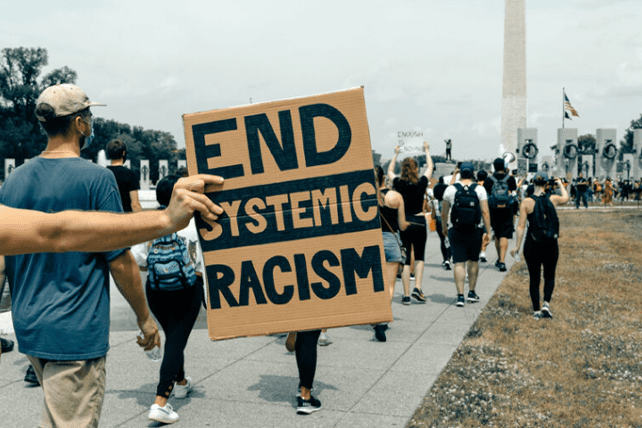George Yancey, a professor of sociology at Baylor University, said that other surveys have shown similar divides when it comes to matters of race and discrimination, adding that attitudes changed little even after the protests that were sparked by the death of George Floyd.
Yancey said that churches have done little to resist the influence of politics among their members. “We have taken our overall polarization and we place it into the racial debate,” he said. Politics, rather than their religious beliefs, shape attitudes about race.
He believes similar approaches happen among more progressive religious people, and as a result there’s little listening going on when people talk about matters of race. “I don’t think Christians are the source of polarization,” said Yancey. “But I do think we have not fought against it. We have accepted in and put it into our ministries rather than trying to show concern and care for people who disagree with us.”
Sociologist Michael O. Emerson, who studies religion and public policy at Rice University and co-wrote “Divided by Faith,” an influential 2000 survey of religion and race in America, suspects the trouble is more than politics. In a new book, “The Religion of Whiteness,” due out in the spring, Emerson said he and his co-author argue that the idea of being colorblind — disregarding race as having any impact on life — has become theological.
“It’s not just a ruse for politics,” he said. “It is theological. It is a transcendent reality.”
Emerson said that the religion of whiteness — a distinctly American faith, he said — has a number of symbols, including a white Jesus, the cross, the American flag and firearms. “The only way to address this is a spiritual battle,” he said. “You can’t just use politics to change it.”
Derwin Gray, pastor of Transformation Church outside of Charlotte, North Carolina, and author of “How To Heal Our Racial Divide,” also worries about how race and religion have been intertwined. In recent years, he believes, it has become increasingly difficult to talk about matters of race in churches.
“Race and prejudice are a matter of idolatry in the American church,” said Gray. “As a pastor, I have to gospel that out of people.”
Gray said that almost every country in the world has issues of race, because human beings are by nature sinful. So, America is not unique in having to deal with the issue of race.
He said that the growing number of multiethnic churches shows that racial reconciliation can take place. About 1 in 4 congregations in the U.S. is multiracial, according to the 2020 Faith Communities Today study.
But being multiethnic means more than just people from different backgrounds worshipping together, said Gray. It also means multiethnic leadership and listening across political lines.
In his book about racial reconciliation, Gray recounts talking with a fellow Christian leader who argued that systemic racial injustice does not exist. Instead, the leader saw American media outlets as organized efforts to discriminate against American Christians.
Gray said that most of the folks who come to Transformation Church, a multiethnic congregation of about 10,000, embrace the idea of racial reconciliation and are open to dealing with America’s racial history. But not all — and those folks often don’t stay, he said.
“If we are truly allowing Jesus to shape us, and we’re truly growing in grace, we’re going to desire the best for our brothers and sisters,” Gray said. “We’re not going to deny the impact of the past. We’re not going to live in the past. We’re going to join hands together to move forward to a better future.”
This article originally appeared here.

